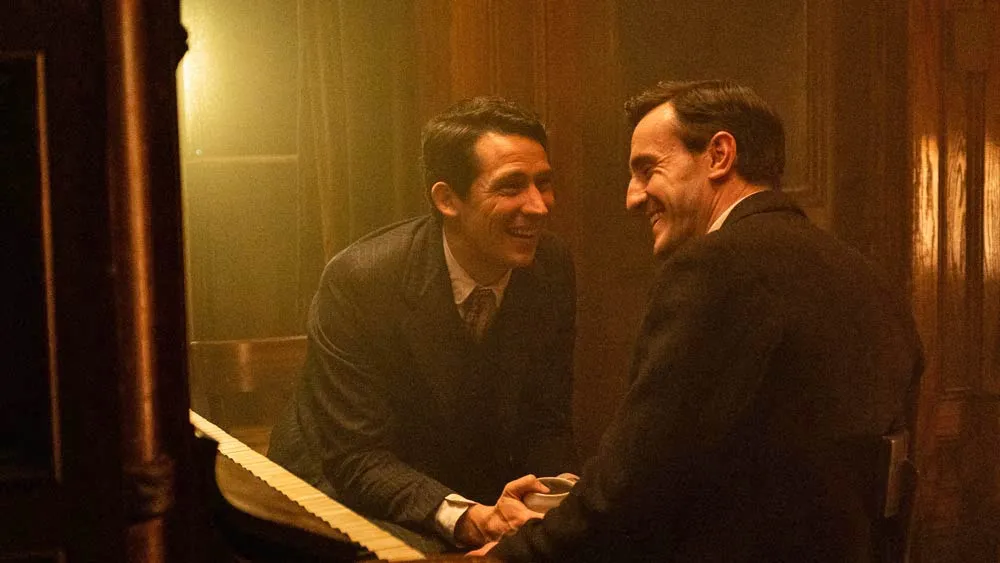July 17, 2015
An Open Secret
Kevin Taft READ TIME: 4 MIN.
For some people working in Hollywood, the rumors of predatory sexual abuse of minors are well known but always seem to be secondhand. The stories generally get a gasp and a shake of the head, and then the next topic unfolds.
But over the years it's been harder to ignore, especially with the release of director Bryan Singer's "X-Men: Days of Future Past" and the subsequent lawsuit brought on by actor Michael Egan III, who stated he was sexually abused by Singer and others when he was a teen. At the time, Egan was written off by many who thought he was trying to make a name for himself and piggyback on Singer's fame. But after watching Amy Berg's latest documentary "An Open Secret," those naysayers may think twice.
While the issue is bigger than this film, Berg has decided to focus on a few particular cases, some related and all involving a circle of pedophiles working within the industry that for some reason have been allowed to perpetuate their abuse for many years. Through interviews with the victims and their families, we get an inside look at how young teenage boys were taken in by managers and producers, fed lies and dazzled with wealth, only to find there was a price to pay. The fact that the system allowed this to happen and people simply turned a blind eye is shocking in itself. The fact that most of these predators haven't served time, or have served stupidly short sentences and now continue to work in the industry, is downright horrifying.
The film follows three different boys' stories. One, a popular high school kid who went to LA to become an actor, was abused by older men who promised fame and fortune, only to return home a broken young man. Another was a 12-year-old boy with dreams of becoming a singer whose manager, Marty Weiss, befriended him and his family, only to continually take advantage of him (and many others) sexually for years. Lastly, there's the case of a boy who became entangled with Marc Collins-Rector, the founder of a web-video site called DEN (Digital Entertainment Network), who invited many young boys into his mansion along with his underage boyfriend. There, many parties occurred that involved drugs, booze, and naked boys and men in hot tubs.
Two of the three boys above, now in their early twenties, reveal the details of the abuse they suffered, and how they dealt with it later on. Interviews with their emotional parents is heartbreaking, as they unknowingly led their children into the hands of monsters.
Another focus is Michael Harrah, a manager of young clients and cofounder of SAG's Young Performer's Committee, who openly talks about the dangers of newcomers to the business. It's not until the last third of the film that we start to see how inconsistent his information is, and the jaw-droppingly cavalier statements he makes about the sexual abuse. It's stomach-turning.
While the film is shocking and disturbing, it's never exploitive. Its only flaw is that when it makes statements that these cases are just the "tip of the iceberg," without providing more examples outside of these cases, it tends to come across too narrow for us to see how widespread it is. We also only focus on boys -- although the film states during the end credits that, while they chose to focus on these cases, the abuse isn't gender-specific. If this problem is as rampant as they state, the doc might have been harder hitting if it had addressed a slew of other cases.
That said, it might be hard to get people to talk, and you have to have respect for the courage these young men had in coming forward. Egan, in particular, discusses his abuse along with other friends who were involved with the DEN website. The references to Bryan Singer's involvement are briefly mentioned -- he reportedly attended these parties, but such claims come only so close to being any sort of accusation. It's unfortunate that Egan's own lawsuit against Singer (and three others) isn't even mentioned, and, with all the tales of Singer's behavior with young boys, that the subject is skirted away before it gets too damning. (Although it doesn't help his case, and it's a wonder why any studio still gives him work. The fear of retribution should be scary enough, but this is Hollywood and money is the prime motivator -- not a child's wellbeing.)
Truth be told, the doc isn't as hard-hitting as it could have been -- and maybe should have been. This is an important subject, and because it involves Hollywood, it could appeal to mainstream audiences and get them talking. While it feels more at home on somewhere like HBO, it would be nice if it could be seen widely -- to encourage more victims to come forward, but also as a warning to parents whose children are either in the industry already, or about to step into the Hollywood machine.
Kevin Taft is a screenwriter/critic living in Los Angeles with an unnatural attachment to 'Star Wars' and the desire to be adopted by Steven Spielberg.






